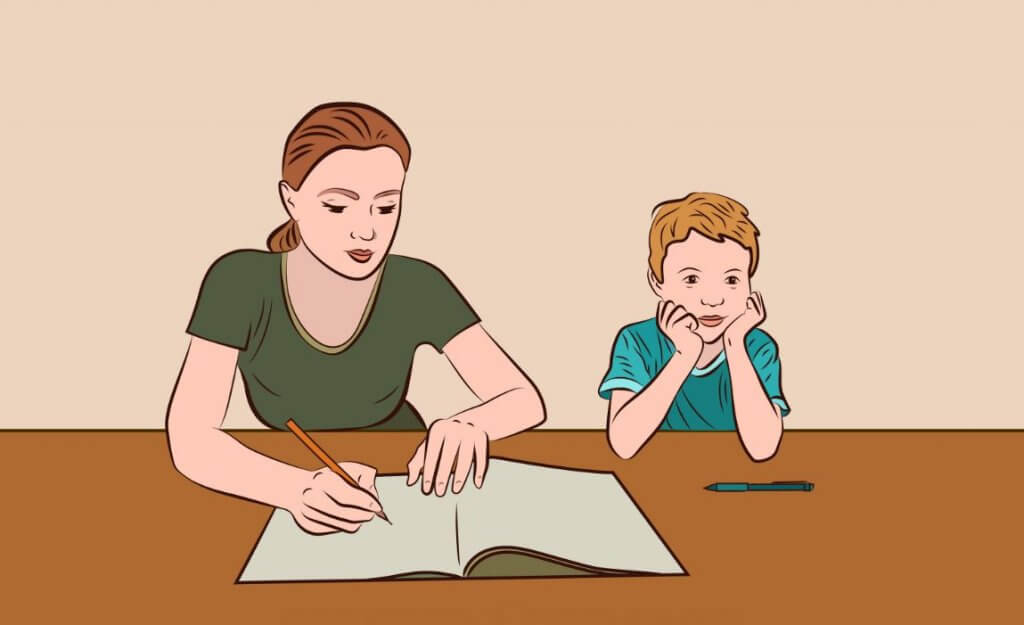The task is part of the routine of many children on our planet, in most teaching plans it was defined that from a certain age, for an effective assimilation of knowledge, the individual work of the student with the subject is necessary. it is used to create a routine, in addition to helping children who are late, who as they grow up a little more, begin to fulfill the mission we were talking about at first.
In the early years children usually have a teacher for all or most subjects, this teacher has full control and knows what tasks to do at home and can estimate, more or less, the time it takes to complete them. Things get complicated, because they’re almost going to have one teacher per subject, so what one sends, the other ignores it. This is perhaps the first problem that the task can present: that there are many because of the lack of communication between teachers.
- Most tend to think that it is better to have more tasks and not lose them.
- So we say what many say: this knowledge will be consolidated with practice.
- Two laws that can be valid if you look at them in the abstract way.
- But that pose problems when it comes to taking the objective and integral path: they say there are more disciplines.
- More extracurricular courses or an additional difficulty for students who do not have a good educational basis.
In recent months a discussion has emerged about tasks, several parents have made public statements in which they have explained how their children cope with a lot of tasks on a daily basis, which greatly affected their schedules and turned parents into second teachers, like some of them. lessons hadn’t always been presented in class.
If you look at education systems around the world, we will see that there is a taste for all colors. China is perhaps one of the most task-friendly countries, unlike Finland or Korea, which are at the other end. Totally different cultures, but it is not surprising that two countries such as China and Finland, benchmarks in education, are in such different positions.
In our culture something very curious happens, most parents prioritize school work, before going to see the family, visiting museums, attending conferences, there are tasks, in one afternoon you may miss the first, but not the second. I let the reader reflect on the subject, which is not the subject of this article.
Because most children have homework, parents pay attention to them most of the time. Attention that decreases as the child grows and continually demonstrates that it is a responsibility he has already learned to assume.
When they pay attention, parents may realize that their children need help or are asking for it themselves. So the question arises: how can we help them without good intentions that end up making learning difficult? Here are 5 tips that can help us understand the answer.
First, the premise is that we should not carry the weight of the task, that is, we are assistants: people who give clues, encourage, provide sources, give similar examples, but we will not do our homework. It is not advisable to sit with them. Intermittent help is much better and never from the beginning. He thinks if we do it from the beginning, we tell the kid we think he can’t be alone.
The second guideline is to avoid other temptations faced by many parents: the task should not be corrected at home, if we do we will not let the child learn to do this equally important task in the classroom, nor will we allow the teacher to have an idea of the level of the child, nor to adjust the level of the tasks entrusted to him.
The third model is to create a space for the child to study calmly and where there are not many distractions. It’s also a good idea to designate a start and end time, and always after the child has eaten or eaten a snack and rested a little. In this sense, the afternoon should always be more than an office period. In the last years of elementary school, it would be good for the child to learn to keep a diary. She will put the tests, the tasks, the important dates and, why not, everything she finds interesting. Tracking how well you are doing will be an important and positive reinforcement, and you will have a great excuse to praise and recognize your efforts.
The fourth board is related to the organization of duties. Try not to start or complete the most difficult task, the best thing is that it is easier or more likes, so the possibility of getting discouraged is less, because you will not be so tired of doing so.
We used to talk about not correcting the task, but it is recommended to confirm that the correction was made in class and that the child understood what was wrong. In addition, reviewing this correction allows us to better understand the procedures that the teacher intends to implement to solve the problems.
If we can do everything right, not only will we not harm our children’s autonomy from the task, but we will redouble our trust, and it will be a great opportunity to share time together, making them feel how much we care beyond demonstrations of normal affection.

